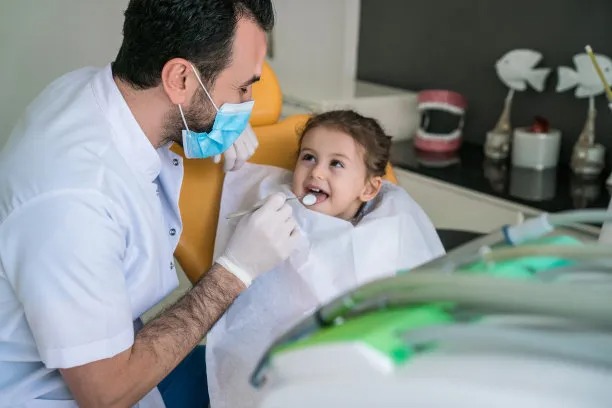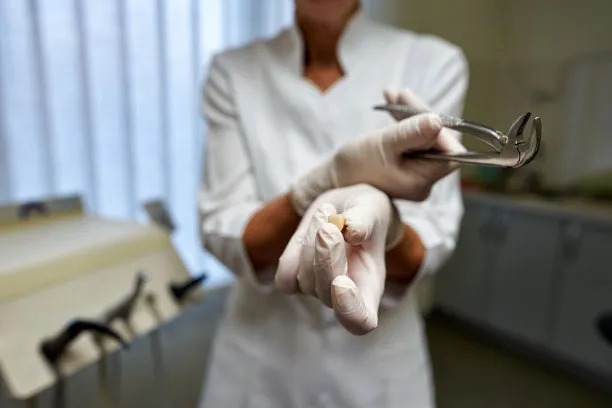Summary: Dental fillings are essential for maintaining optimal oral health, especially when it comes to repairing cavities or damage to teeth. This article explores essential guidelines to follow before and after the dental filling procedure, emphasizing the importance of preparation, post-treatment care, dietary considerations, and follow-up appointments. Each section will provide actionable advice to ensure that patients can optimize their oral health and promote effective healing. By adhering to these guidelines, individuals can minimize discomfort and reinforce the longevity of their dental fillings, leading to a healthier smile.
1. Importance of Preparation Before the Procedure

Before undergoing a dental filling procedure, it is crucial to prepare adequately. Start by discussing your dental history and any medications you are currently taking with your dentist. This information is essential, as it may influence the type of anesthetic used and the overall approach to your treatment.
Next, consider managing anxiety that can accompany dental visits. Techniques such as deep breathing or listening to music can help create a relaxed state before your appointment. Additionally, ensuring that you have transportation arranged, especially if sedation is planned, can alleviate stress on the day of the procedure.
Finally, scheduling the procedure at a time when you can rest afterward can benefit your recovery. Taking a day off from work or rescheduling commitments ensures that you can focus on your healing without the added stress of daily obligations.
2. Post-Treatment Oral Care Practices
After your dental filling, following precise oral care practices is essential for optimal healing. Avoid disturbing the filling site for at least 24 hours, as the dental material will require time to set completely. During this period, practicing gentle oral hygiene is vital; use a soft-bristled toothbrush to keep your mouth clean without irritating the area.
While it is essential to maintain oral hygiene immediately following the procedure, be cautious about flossing around the filled tooth for the first few days. This practice can help prevent accidental dislodging of the filling material. Instead, focus on brushing and swishing with an approved mouth rinse to keep your mouth fresh.
Furthermore, monitor any discomfort or swelling and consult your dentist if it persists. Mild discomfort can be expected, but prolonged pain or sensitivity may indicate that something needs attention.
3. Dietary Considerations After Fillings
Diet plays a significant role in recovery following dental filling procedures. Immediately after treatment, it is advisable to avoid hot, hard, or sticky foods that may interfere with the filling material. Opt for softer foods like yogurt, mashed potatoes, or smoothies that are easier to consume without causing strain on the affected tooth.
After the initial 24 hours, you can gradually reintroduce regular foods. However, remain mindful of any lingering tenderness and choose foods that do not exacerbate discomfort. It is also a good idea to avoid extremely hot or cold items, as they can cause sensitivity in fillings that are still settling in.
Finally, be cautious regarding sugary foods and beverages, as they can contribute to further tooth decay and may jeopardize the integrity of your filling. Prioritizing a balanced diet rich in calcium and vitamins will not only aid in the healing process but also support overall gum and tooth health moving forward.
4. Importance of Follow-Up Appointments
Scheduling follow-up appointments with your dentist is vital to ensure that your filling is functioning correctly and that no complications arise post-treatment. These visits typically occur a few weeks to a month after your procedure, allowing your dentist to evaluate the filling and provide necessary adjustments.
During these appointments, be open about any lingering sensitivity or discomfort you might experience. Some issues may require minor adjustments to the filling to ensure a proper fit, which can alleviate discomfort during chewing.
Finally, while these visits are crucial for monitoring the condition of your fillings, they also serve as an opportunity for your dentist to conduct a thorough examination of your overall oral health. Regular check-ups are a great way to prevent future dental issues and maintain optimal health.
Summary:
In conclusion, adhering to essential guidelines before and after dental filling procedures significantly contributes to maintaining optimal oral health. Proper preparation, diligent post-treatment care, careful dietary choices, and regular follow-up appointments all play crucial roles. By being proactive in these areas, patients can ensure a smoother recovery and enhance the longevity of their dental fillings.
This article is compiled by Vickong Dental and the content is for reference only.
Vickong Dental
Vickong Dental is a large medical group established in Hong Kong in 2008 by professors from well-known medical universities in Guangdong and Hong Kong, as well as medical doctors from key national '985' universities (including Master's supervisors and senior professors). The chain of branches brings together expert dentists with PhDs and Master's degrees from Hong Kong and Mainland China, committed to providing high-quality dental treatment.
"Vickong Dental Practices the University Motto of 'Healing and Serving Society,' with a Stable Operation for Sixteen Years. It Has Been honored with Hong Kong Enterprise Leaders's Choice,' and is a Global Trusted Implant Center for the Nobel Implant System. Recommended by Hong Kong Metro Broadcast and Guangdong Television, it Serves Customers from Over Thirty Countries and Regions, Gaining the Trust and Favor of Citizens from the Guangdong-Hong Kong-Macau Greater Bay Area and Surrounding Cities.

Thousands of customers' unanimous praise
The most recognized and highly recommended dental service by customers in the Guangdong-Hong Kong-Macau Greater Bay Area
We Ensure You Receive Detailed Care and Attention Here
Hong Kong standards, Shenzhen prices, Your Trusted English-speaking dentists

Vickong Dental Medical-Grade Instrument Disinfection Process
Vickong Dental Medical-Grade Instrument Disinfection Process

Vickong Dental Chain: A Warm and Comfortable Environment for Treatment






Appointment Hours

Q&A
Why choose Vickong Dental?
Vickong Dental practices the university motto 「Medicine to Benefit Society」, with each branch bringing together highly qualified dentists with doctoral and master’s degrees from Hong Kong and the Mainland, and has maintained seventeen years of steady operation。Recipient of 「2024 Hong Kong Enterprise Leaders Brand」, 「2025 Hong Kong Enterprise Leaders Brand」, a Nobel Biocare Global Trusted Implant Center, and a brand recommended by Metro Radio Hong Kong and Guangdong TV。
To date, we have served customers from more than thirty countries and regions,earning exceptionally high word-of-mouth recognition and trusted recommendations from residents across the Guangdong-Hong Kong-Macao Greater Bay Area and surrounding cities
We have eight major branches in Zhuhai、Shenzhen,and a consultation and service assurance center in Hong Kong,so you can book a free consultation at any time for any questions,which is very reassuring.
If I do not accept the quotation after the CT scan, will I be charged??
No! As long as the actual treatment has not started, you will not be charged any fees.
Will there be any additional charges during the treatment process?
No, there won’t be any additional charges. Before treatment begins, we will clearly explain the treatment plan and its corresponding fees. Only after the patient agrees and signs the consent form will we proceed with the dental service.
Can I pay in Hong Kong dollars?
Yes. Vickong Dental accepts payment in Hong Kong dollars. The amount will be converted based on the exchange rate of the day, and the applicable rate will be clearly communicated to you in advance.
Can I reschedule my appointment at any time?
Yes. Please contact us via **WeChat** or **WhatsApp** as early as possible, providing your original appointment time and details, along with your preferred new date and time slot for rescheduling.













